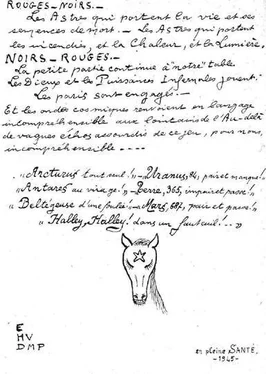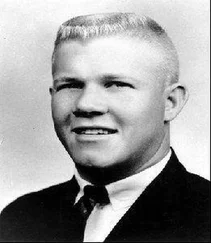ALSO BY DAVID KING
VIENNA, 1814
How the Conquerors of Napoleon
Made Love, War, and Peace at
the Congress of Vienna
FINDING ATLANTIS
A True Story of Genius, Madness ,
and an Extraordinary Quest for a
Lost World

TO JULIA AND MAX
With special thanks to the Préfecture de
Police for granting me access to the entire
Petiot dossier, which has been classified
since the time of the events .
PREFACE
March 11, 1944
A THICK black smoke streamed into Jacques and Andrée Marçais’s fifth-floor apartment at 22 rue Le Sueur in the heart of Paris’s fashionable 16th arrondissement. The smoke had begun five days before, but now, in the unusually warm weather, it was getting worse, seeping through closed windows and soiling the furniture. In the air was a nauseating smell described variously as burnt caramel, burnt rubber, or a burnt roast of poor quality. The source of the disturbance, it seemed, was a building across the street. “Do something,” Andrée Marçais told her husband when he returned home just before six o’clock that evening, and she sent him over to investigate.
Neither Jacques nor his wife knew who, if anyone, lived in the neighboring two-and-a-half-story town house at 21 rue Le Sueur. A man was sometimes seen riding there on a green bicycle, towing a cart whose contents were concealed under a heavy canvas. On rare occasions, he appeared to receive visitors, who arrived almost invariably at night curiously lugging a couple of heavy suitcases.
As Jacques approached the stately structure with its blackened gray stone façade, he could tell that the smoke was indeed pouring out of its narrow chimney. He could not, however, see inside the house. The shutters on the ground floor were closed, and the curtains on the second floor were drawn. Jacques rang the bell. After no response, he pressed the button a few more times. Then, noticing a small, weather-worn piece of paper attached to the large double door that had once served as a carriage entrance, he took it down and read: “Away for a month. Forward mail to 18, rue des Lombards, Auxerre.”
Worried about a chimney fire blazing in an empty house, Jacques returned home and called the police.
Moments later, two bicycle patrolmen arrived on the scene. After trying in vain to enter the premises, the men, Joseph Teyssier and Emile Fillion, went looking for someone who could identify the owner of the property. The concierge at No. 23, Marie Pageot, informed them that the town house was unoccupied but belonged to a family physician named Marcel Petiot, who lived at 66 rue Caumartin near Gare Saint-Lazare, in a bustling commercial district just south of a seedy center of strip joints, brothels, and nightclubs.
With the physician’s name and telephone number in hand, Teyssier entered the nearby grocer shop, Garanne, and dialed: Pigalle 77–11. A woman answered and then put Dr. Petiot on the line. Teyssier informed him of the fire at his property.
“Have you entered the building?” the physician asked.
“No.”
“Don’t touch anything. I will bring the keys immediately. Fifteen minutes at the most.”
When Teyssier exited the shop, the unusual smoke had attracted a few residents onto the sidewalk. Other neighbors watched from upper-story windows, the officers and onlookers alike scurrying about as they awaited the arrival of the owner. Fifteen minutes passed, and Petiot was nowhere in sight. Another ten minutes passed, and still no Petiot. Biking from his apartment on rue Caumartin at that time of the evening should not have taken more than ten to twelve minutes.
After almost half an hour, the patrolmen decided that they could not wait any longer and called the fire department, which immediately dispatched a truck from the station at 8 rue Mesnil. The leader of the fire brigade, thirty-three-year-old Corporal Avilla Boudringhin, grabbed a ladder and climbed onto a second-floor balcony. Opening the wooden shutter, he smashed the glass, released the window lock, and stepped inside the darkened mansion. Two of his men followed. With the aid of a flashlight, the small team of firefighters traced the peculiar, nauseating smell to a small room in the basement. One of the two coal stoves there was roaring furiously. It was fireman Roger Bérody who opened the iron door.
Jutting out were the charred remains of a human hand. On the far staircase was a pile of debris, which turned out to be a skull, a rib cage, and several other recognizable bones. Arms and legs had been strewn about in parts. A split torso and two other skulls lay on the floor. The stench of scorched and decomposing flesh was overpowering. Horrified, the fire chief ordered his men out of the basement. As the firefighters exited the grisly site, one of the younger men leaned over an iron banister and vomited.
“Gentlemen, come and take a look,” Boudringhin told the patrolmen once he emerged onto the street through the old carriage entrance. “I believe that your work will be cut out for you.”
Teyssier was not the least prepared for the carnage that awaited him in the basement. He rushed back to Garanne and telephoned headquarters.
A large crowd soon gathered outside the town house, many of them curious about the smoke, the commotion, and now also the sight of a fire truck that was not yet extinguishing the fire. Among the arrivals was a slim, dark-haired man of medium height, pushing a bicycle through the throng of onlookers. He was pale and clean-shaven, and wore a dark gray overcoat and a fedora. He was sweating profusely.
When he reached the front of the crowd, he leaned his bike against the building, walked up to the fire chief, and identified himself as the brother of the owner. He demanded to be taken inside, speaking with such conviction that the fire chief waved him through to Patrolman Fillion. While the two men were talking, Patrolman Teyssier returned to the scene.
“Are you good Frenchmen?” the man asked.
“What kind of question is that?”
“Then listen carefully. What you see there are the bodies of Germans and traitors to our country.” Discreetly, he asked if the authorities had been notified. Teyssier nodded.
“That’s a serious mistake,” the man said. “My life is at stake, as are the lives of several of my friends who serve our cause.” He explained that he was in charge of a French Resistance organization and handed over a document to that effect, though the details were difficult to read in the darkness. In the meantime, he reached down and picked something off the ground, shoving it into his pocket.
The man then professed to have some three hundred secret files and identification cards of fellow Resistants at his house. “I must destroy them at once before they fall into the hands of the Germans.”
Sympathetic to the work of the Resistance, Teyssier and Fillion had no desire to see so many patriotic Frenchmen handed over to the Nazis and carted off to prisons, concentration camps, or some other horrific fate. They agreed to allow the man to leave the scene of the crime, even though he clearly had information that could have helped the investigation. What’s more, the officers agreed not to inform their superiors about his visit. The stranger biked away into the night.
Later, when Teyssier saw a photograph of the physician who owned the building, he was mortified to learn that the man on the bicycle had been Marcel Petiot.
A CROSS town, at 48–50 Boulevard Diderot, Commissaire Georges-Victor Massu, the chief of the Brigade Criminelle, had just finished dinner with his wife, Mathilde, and twenty-year-old son, Bernard. Massu had settled into his favorite chair to talk about the day’s activities: a burglary, an assault case, and the usual routine of reports, interrogations, and seemingly endless paperwork. Bernard, a law student at the University of Paris, had retreated to his room to prepare for exams.
Читать дальше













